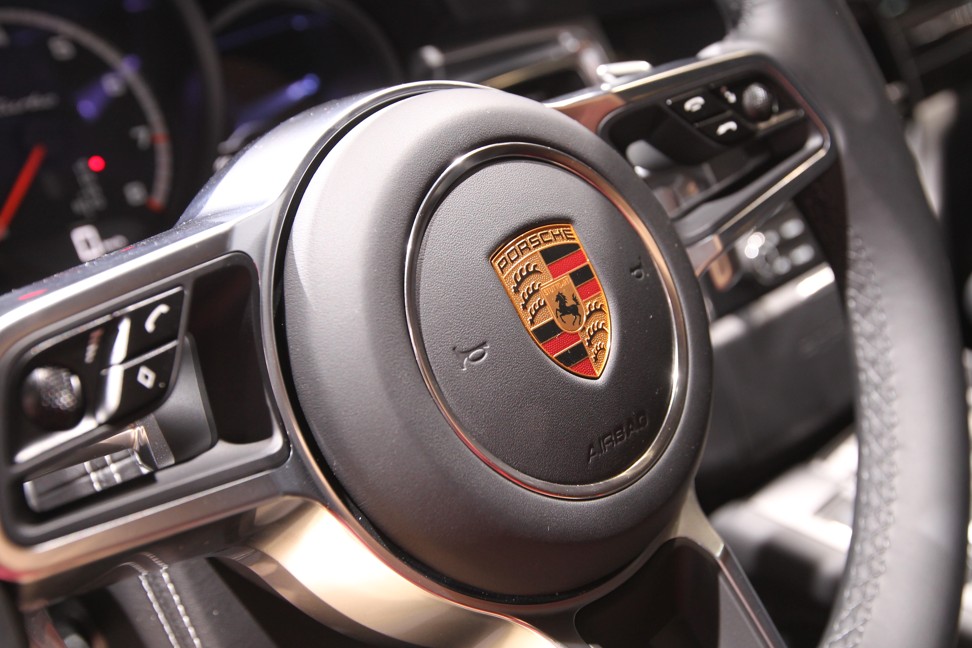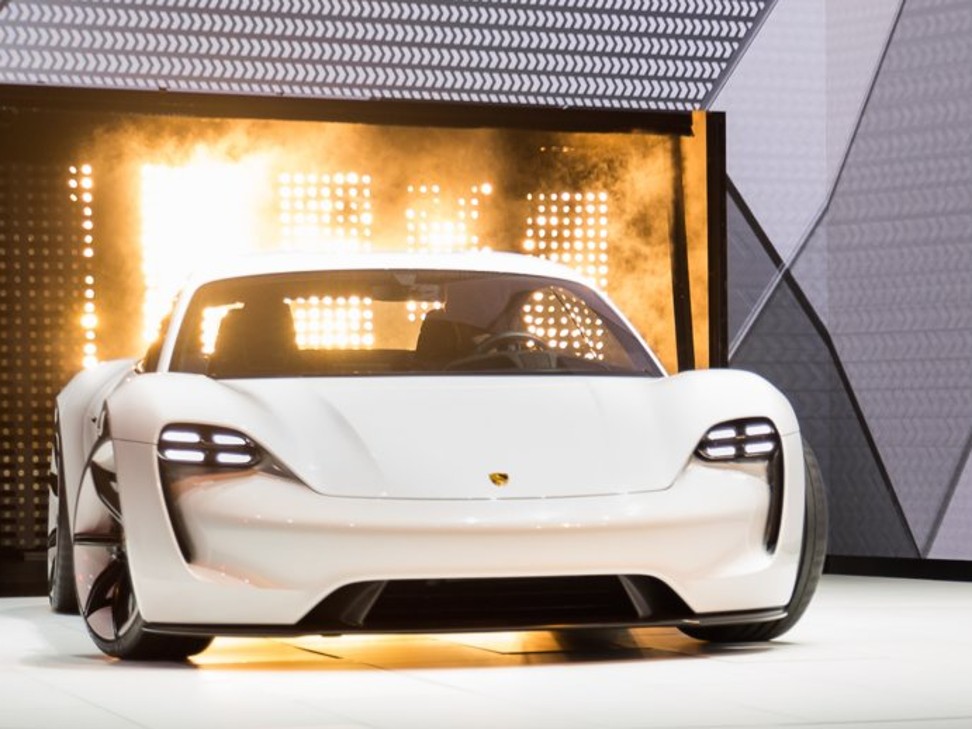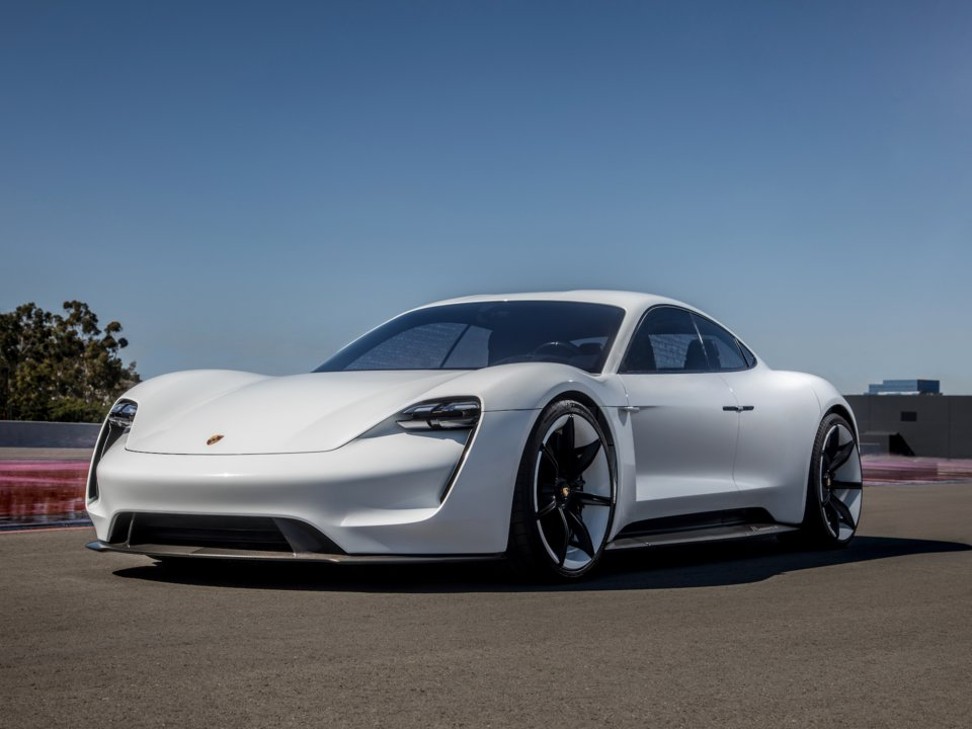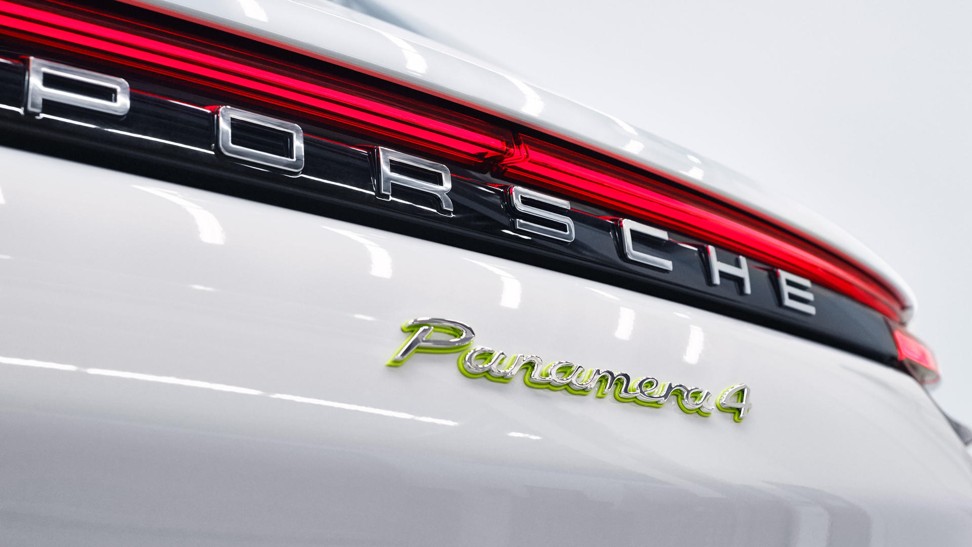Chinese consumers will drive future of electric cars, says Porsche China CEO
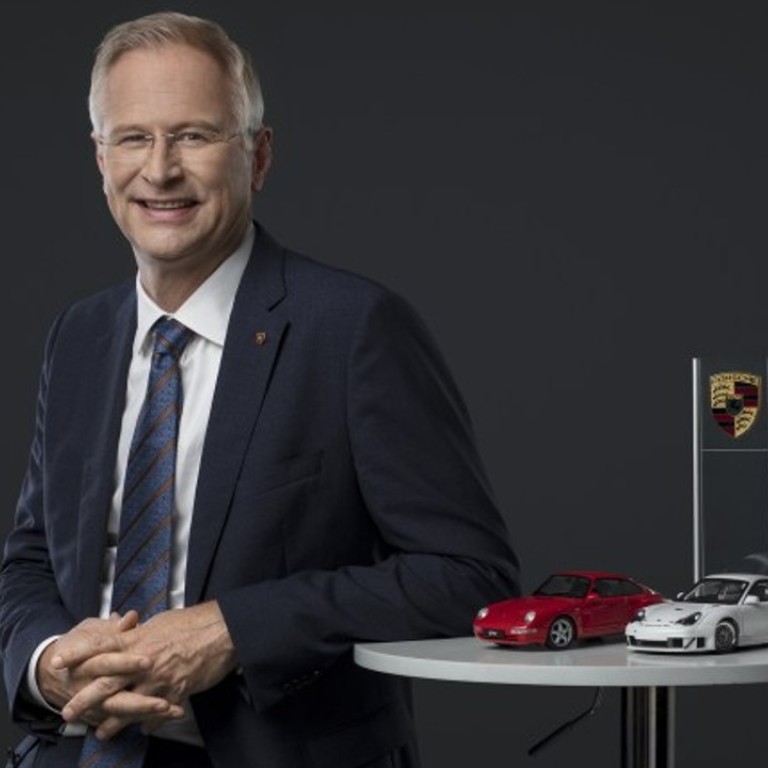
Shanghai was the location for the world premiere of the new Porsche Macan.
This was no coincidence as China is now the largest individual market for Porsche for the third year in a row.
Of the more than 350,000 Macans sold since 2014, more than 100,000 are in China.
We still believe that everyone deserves to experience the charm of the sports car. With some entry-level models, such as the Macan, we made Porsche ownership possible for a whole new group of drivers
China’s passion for Porsche began long ago and the feeling is clearly mutual, with bold new projects such as the Porsche Experience Centre in Shanghai, next to the Shanghai International Circuit – the motorsport track that hosts Shanghai Formula One Grand Prix races – being the first in Asia.
We spoke to Jens Puttfarcken, the new president & CEO of Porsche China, after the launch of the car to learn more about the extensive brand communications that Porsche achieves in the region.
While the strength and success of Porsche in China market is obviously due to the product itself – the cars – how has Porsche been able to find such success in engaging with Chinese Porsche lovers?
Indeed, fascinating products are the backbone of our success.
The sports car image of Porsche has been strengthened and China became the second largest individual market of Porsche’s two-door sports car.
China has been the largest individual market of Porsche for three consecutive years.
I feel that [everyone] should recognise the strength of the Chinese market. China has been the largest individual market of Porsche for years. Looking ahead, I think the electric car market is [going to be] driven by China
We held the world premiere of the new Macan on July 25 in Shanghai, which we believe is the most stylish and sportiest SUV [sport-utility vehicle] in its segment.
As well as the cars themselves, we have created an ever-strengthening sales network with future-oriented innovation and diversified retail formats, for example traditional 4S sales sites, the Porsche Studio, Porsche pop-up stores and Porsche City Service Centre.
We have focused on a digital, interactive experience to combine the traditional Porsche spirit with the power of new technology.
As well as these aspects, [there are] two crucial points which keep the customers close to our brand during their entire life journey.
[One is] Porsche Club China. Established in April 2017 in Shanghai, we have recently added Porsche Club China in [the cities] Shenzhen and Changzhou, already attracting more than 2,600 members around China in total.
Another sign of our dedication to the China market is the Porsche Experience Centre, which is the sixth worldwide and the first in Asia.
There are a variety of driving experiences on offer, from an “Off Road Playground” for the Cayenne, a purpose-built racetrack, large spaces for diverse events, a restaurant and cafe, and interactive games for both adults and children, such as the virtual racing simulators.
There are even more points of engagement such as the Porsche Travel Experience, which voyages to exotic locations such as the Silk Road and Inner Mongolia.
How do you achieve the balance of being ‘welcoming to all’ without diluting the brand – remaining elite while not being elitist?
Building a “people’s car” is a principle instilled by our founder, Ferdinand Porsche.
We still believe that everyone deserves to experience the charm of the sports car.
With some entry-level models, such as the Macan, we made Porsche ownership possible for a whole new group of drivers.
It enables them to experience the authentic sports car drive in their daily lives with a Porsche SUV.
On top of that, Porsche creates fascinating brand experiences.
We purposefully create pop-up events in easily accessible locations such as popular shopping malls, meaning that access to the Porsche brand is welcoming – and for all.
Taking the Porsche Experience Centre as another example, different kinds of fans of all ages can enjoy Porsche without needing to purchase a car.
Does the outside world finally see the strength of the Chinese market? What more should they realise?
Currently, I feel that [everyone] should recognise the strength of the Chinese market.
Many brands want to join and be part of the rapid economic growth of China, including Porsche.
China has been the largest individual market of Porsche for years. Looking ahead, I think the electric car market is [going to be] driven by China.
The Chinese market is unique in various ways, and one of them is generationally. It’s the youngest market, with an average owner age of 36, whereas Germany is 53 and the United States is 52
Porsche will establish an innovation lab in Shanghai, to get closer to Chinese consumers and to study Chinese start-ups, thus finding out new solutions specific for China.
New technologies are developing rapidly in China, leading in many areas.
Porsche is very strong in realising the importance of ‘the family’ to Chinese customers. Is this now a marketing feature that is crucial for all types of brands? How else is the market unique?
The family culture is all-important in China.
At Porsche, we are a family company and it’s an important part of our culture.
As [I] mentioned, the Porsche Experience Centre offers a diversified environment for multiple purposes, allowing all family members to have fun regardless of their gender, age and driving experience.
The family members of our customers are always welcomed for all kinds of Porsche China customer events, for example Porsche Club China [and] Porsche Carrera Cup Asia.
The Chinese market is unique in various ways, and one of them is generationally.
It’s the youngest market, with an average owner age of 36, whereas Germany is 53 and the United States is 52.
This much younger age means being more oriented to future technologies, connectivity and digitalisation.
China is a gender-balanced Porsche car market: of Porsche owners in China, the proportion of women is 47 per cent, followed by Russia at 33 per cent and the US at 22 per cent
Chinese customers ask more about the technological services than the European and the US customers do.
Chinese customers are also more focused on social media. They must have all of the connectivity in the car.
It is a completely different expectation in this regard. Notably, it is also a gender-balanced market: of owners in China, the proportion of women is 47 per cent, followed by Russia at 33 per cent and the US at 22 per cent.
Electric vehicles are on the rise, both in China and worldwide. What is Porsche planning in this regard?
The Taycan – formerly known as the Mission E Concept, the first purely electric Porsche – is set to begin its series production next year.
Over the next five years, Porsche will invest more than €6 billion (US$6.9 billion) into e-mobility [electric-powered vehicle production], and we will also invest strongly in charging infrastructure.
All the investment has taken the Chinese market as a major consideration. In China, we are considering the services of home-charging facilities and fast-charging facilities at Porsche Centres.
We will collaborate with other partners to build up a fast-speed charging infrastructure network.
That’s a strong investment which must be long-term oriented.
Want more stories like this? Sign up here. Follow STYLE on Facebook, Instagram and Twitter
This article originally appeared on The Luxury Conversations.

German carmaker to invest US$6.9 billion in electric vehicle production and also target younger drivers in nation – its biggest market for past three years
